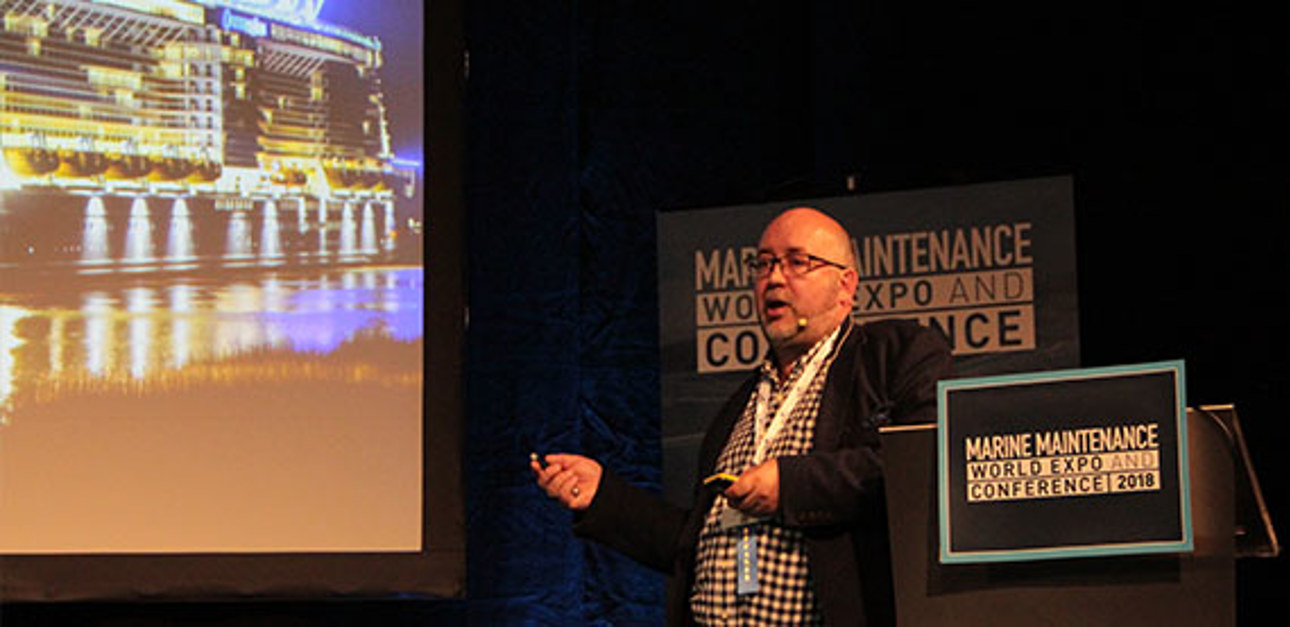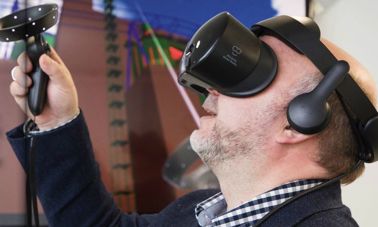Augmented reality to enhance vessel operation
Oct 22, 2018
Original focused on virtual games, augmented reality is now becoming more and more significant in promoting industrial products and educating audiences about their potential. They are powerful tools for many purposes, especially in the marine sector.

At the Marine Maintenance Conference in June 2018, in Amsterdam, Mika Karaila, Valmet’s Research Director, Automation R&D, presented the latest technology using augmented reality for the marine sector. Originally focused on virtual games, augmented reality is now becoming more and more significant in promoting industrial products and educating audiences about their potential.
Augmented reality (AR) means technology where virtual components, such as graphics and images, interact with the real environment. AR is used with tablets or smart phones. The user interacts with the digital images and graphics.
Virtual reality (VR) creates its own computer-driven reality. Mainly, it is used with a headset, like Microsoft HoloLens. The user can step into the virtual world and navigate all available actions as if in a real world.
For instance, Valmet has mainly used Mixed Reality (MR) with HoloLens until now for marketing purposes at exhibitions and conferences. “However, augmented reality and virtual reality are not just for games, they are powerful tools for many purposes, especially in the marine sector,” explains Mika Karaila.
Valmet experts always available virtually
Cruise ships, icebreakers or cargo ships have to operate constantly at sea. So, every vessel must be maintained immediately and properly when something unexpected occurs – or preferably before that. If you are at sea, far away from port, a technical error can cause major damage.
“AR is an excellent tool to communicate with our customers. All service requests can be responded to instantly. For example, the vessel’s chief inspector might have a Pointr application on a tablet for indoor positioning to explain to Valmet’s experts about the fault in a specific process automation cabinet or controller. In that way, he can be connected to several specialists at the same time in the Valmet Performance Center. No matter where a ship is located, Valmet’s people will be there virtually,” explains Mika.
With Microsoft HoloLens, the customer can work around the vessel in MR. He can make a report in the application, order spare parts or even write down proposals on which devices may have to be maintained or replaced soon – very concrete work to support the life-cycle of the vessel.

“Of course, safety comes first on a vessel. You have to pay attention to where you use the HoloLens, not walking around with the lenses on, but putting them on when you are in front of the device,” Mika says.
The benefits of both real-time discussions with experts and on-time maintenance activities help customers avoid uncertainty in a vessel’s operation from a process automation point of view.
Efficient training offered
The new technology offers great opportunities for training, too. Operators are able to practice the automation system or services virtually beforehand. This saves time and money, and the training can be repeated as many times as needed. Traveling costs are eliminated, and operators can be educated in their own environment. The Samsung Odyssey headset is used to watch 360 videos in virtual reality.
Whenever a team has to be trained or a new crew member joins the team, virtual training is easily available. “VR makes the transfer of expertise easier. It supports collaboration aboard a vessel and also makes training fun,” says Mika.
Safety, reliability and data protection must be taken seriously. At sea, satellite connections by remote service are used. The OPC UA standard protocol provides certificates and encryption for the communication that is used with process device animations in virtual reality.
For more information:
Mika Karaila
mika.karaila at valmet.com